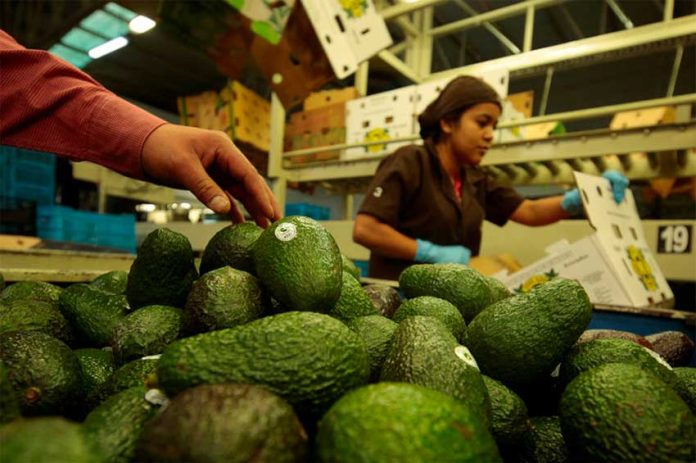The prolonged fuel shortage currently afflicting several states could have an unwelcome consequence in the United States: a lack of avocados with which to make guacamole on Super Bowl Sunday.
Mexican producers ship thousands of tonnes of the fruit to the U.S. in late January and early February to meet increased demand for game day, which this year is February 3.
But the gasoline shortage, caused by the federal government’s decision to change distribution methods as part of its anti-fuel theft strategy, could affect producers’ capacity to get their avocados to people’s homes north of the border.
Mexico’s biggest avocado-growing state, Michoacán, is also the worst affected by the fuel shortage crisis, which has now entered its second week.
Producers in the state expect to send 120,000 tonnes of avocados across the northern border in the lead-up to this year’s Super Bowl, 20,000 more than last year.
“Our three most important weeks of the year are this one and the next two. This is when we ship for Super Bowl week,” Ramón Paz, a spokesman for the APEAM avocado growers’ association, told the news agency Reuters.
“We have from now to January 24, 25 to ship all that volume. If we don’t ship it [by then], we can’t do so later,” Paz said.
To date, 27,000 tonnes of avocados have been shipped for the big sports event.
Paz said the fuel shortage hasn’t yet affected exports to the U.S. but explained that it has begun to make it difficult for workers to get to avocado plantations and to transport the fruit within Mexico.
He added that producers also have regular commitments they need to be able to meet with supermarkets and restaurants in the United States, which depend heavily on Mexican imports.
The avocado growing season in California and Peru won’t restart until March or April and there is only a small quantity of the fruit currently being shipped from Chile, Paz explained.
President López Obrador said yesterday that the government’s anti-fuel theft strategy, which has included the closure of some pipelines, has generated savings of 2.5 billion pesos (US $129.1 million).
Source: Reuters (sp)
